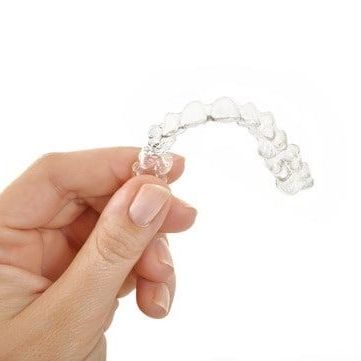Blog

13 May, 2024
Explore the revolutionary benefits of Invisalign at Gluck Ortho in Nashville! Learn how our tailored Invisalign treatments can subtly transform your smile and boost your confidence. Dive into our blog for comprehensive insights into Invisalign’s clear advantages and how it compares to traditional braces.

01 Apr, 2018
Discover essential tips for maintaining your Invisalign aligners with our comprehensive guide. Learn how to keep them clean and invisible with recommended practices, including proper cleaning techniques and what to avoid, ensuring your smile stays beautiful and healthy. Visit Gluck Orthodontics for more expert advice.

01 Mar, 2018
Explore the benefits of a radiant smile with Gluck Ortho in Nashville. Our expert orthodontists specialize in treating misaligned teeth and bites, enhancing not only your smile but also your overall well-being. Discover how the right orthodontic care can improve your life. Visit us today to learn more!

01 Feb, 2018
Discover the importance of professional orthodontic care at Gluck Ortho. From overbites to crowded teeth, our expert team led by the board-certified Dr. Gluck provides comprehensive solutions to ensure your smile is as healthy as it is beautiful. Visit us to learn more about our services and how we can help you care for your smile.

01 Jan, 2018
Explore the benefits of switching to Invisalign at Gluck Ortho. Learn why Invisalign is preferred over traditional braces for its comfort, convenience, and nearly invisible appearance. Discover how you can eat your favorite foods and smile without hesitation. Visit our page to get all the details and schedule a consultation today!

01 Dec, 2017
Transform your smile at Gluck Ortho in Nashville, TN! Whether it's alignment issues or cosmetic concerns, Dr. Gluck and his team provide expert orthodontic solutions tailored to your needs. Schedule a consultation today to learn how we can help you achieve a smile that bursts with joy and confidence. Visit our website to get started!

01 Nov, 2017
Discover the power of a beautiful smile with Gluck Ortho in Nashville! Explore a range of orthodontic solutions from traditional braces to clear aligners tailored for adults. Start your journey to a confident new look today with the help of our experienced orthodontists. Visit us to learn more and transform your smile!

01 Oct, 2017
Start your day with a beautiful smile from Gluck Orthodontics in Nashville! Our expert team offers teeth whitening, braces, and more to give you the confidence to smile all day long. Visit us today and see how we can help transform your smile and your life. Discover more about our services and set up your consultation at Gluck Orthodontics.

01 Sep, 2017
Explore the power of a smile with Gluck Orthodontics in Nashville, TN. Learn how a confident smile can change your life and discover the best orthodontic treatments for adults, including Invisalign and braces, to enhance your smile and overall well-being. Visit us today to see how we can help transform your smile into your most beautiful asset.
© 2024
All Rights Reserved | Gluck Orthdontics


